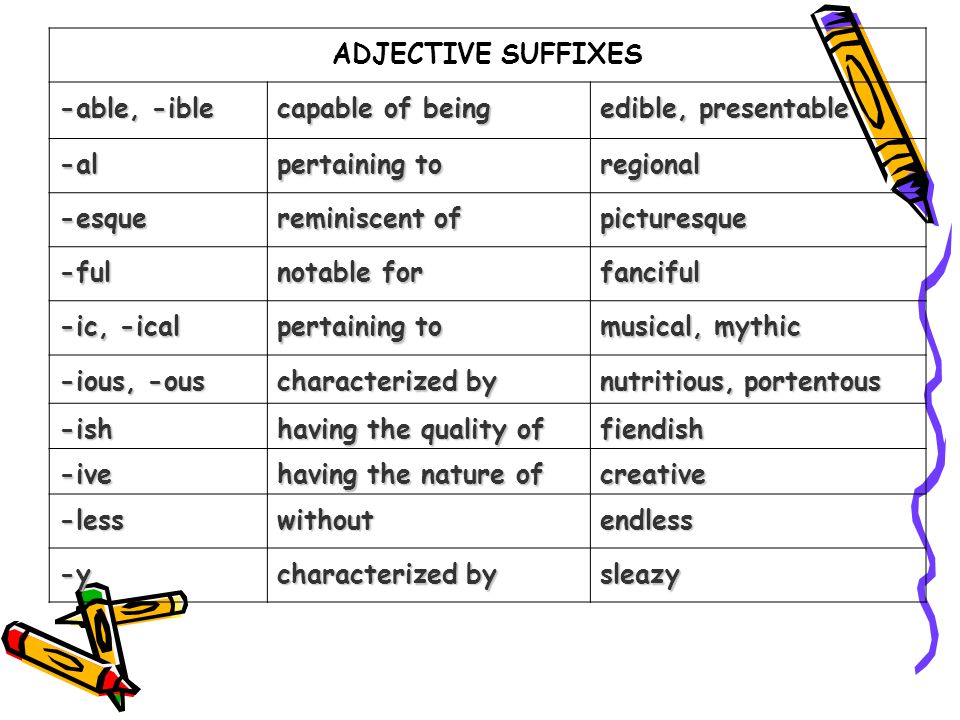Grammar notes 2
ADJECTIVE FORMATION
Introduction
Adjectives give us more information about people, places, animals and things. Some adjectives can be formed from nouns, verbs and even other adjectives by adding a prefix or a suffix.
Learn about adjective formation with Lingolia’s online lesson. In the exercises, you can practise forming adjectives from nouns and verbs.
Formation
We can use suffixes to change nouns and verbs into adjectives, or to change the meaning of an adjective. Some suffixes have a general meaning whilst others simply transform words into adjectives.
- The suffix -less usually means without something whilst the suffix -ful usually means to have something.
- Example:
- (with hope) hopeful ← hope → hopeless (without hope)
- Not all words can be made into adjectives pairs like this. It’s best to check your dictionary.
- Example:
- homeless (but not:
homefull) beautiful (but not:beautyless)
- The suffix -ish changes nouns and adjectives into adjectives that mean like something.
- Example:
- Don’t be childish. (like a child)
The jacket is a bluish colour. (like blue)
- For materials we can add -en to nouns to create adjectives that mean made of.
- Example:
- A wooden chair.
A woolen jumper.
- When added to a verb, -able creates adjectives that express ability.
- Example:
- Is the water drinkable?
Spelling Rules
We don’t normally add or take away letters, we simply add the suffix to the end of the word. However, there are some exceptions:
- We double the final consonant in words that have a short stressed vowel before the final consonant.
- Example:
- sun → sunny
- A -y at the end of a word changes to to -i.
- Example:
- bounty → bountiful
- An -e at the end of a word is dropped when the suffix begins with a vowel, but -ee, -oe, -ye remain unchanged.
- Example:
- fortune → fortunate
agree → agreeable
- An -l is dropped before adding the suffix -ful to words that end in –ll.
- Example:
- skill → skilful
There are many more suffixes that we can use to create adjectives. The tables below provide an overview of adjective formation using verbs and nouns. Unfortunately, there are no rules to follow but we can always use a dictionary.


Comments
Post a Comment